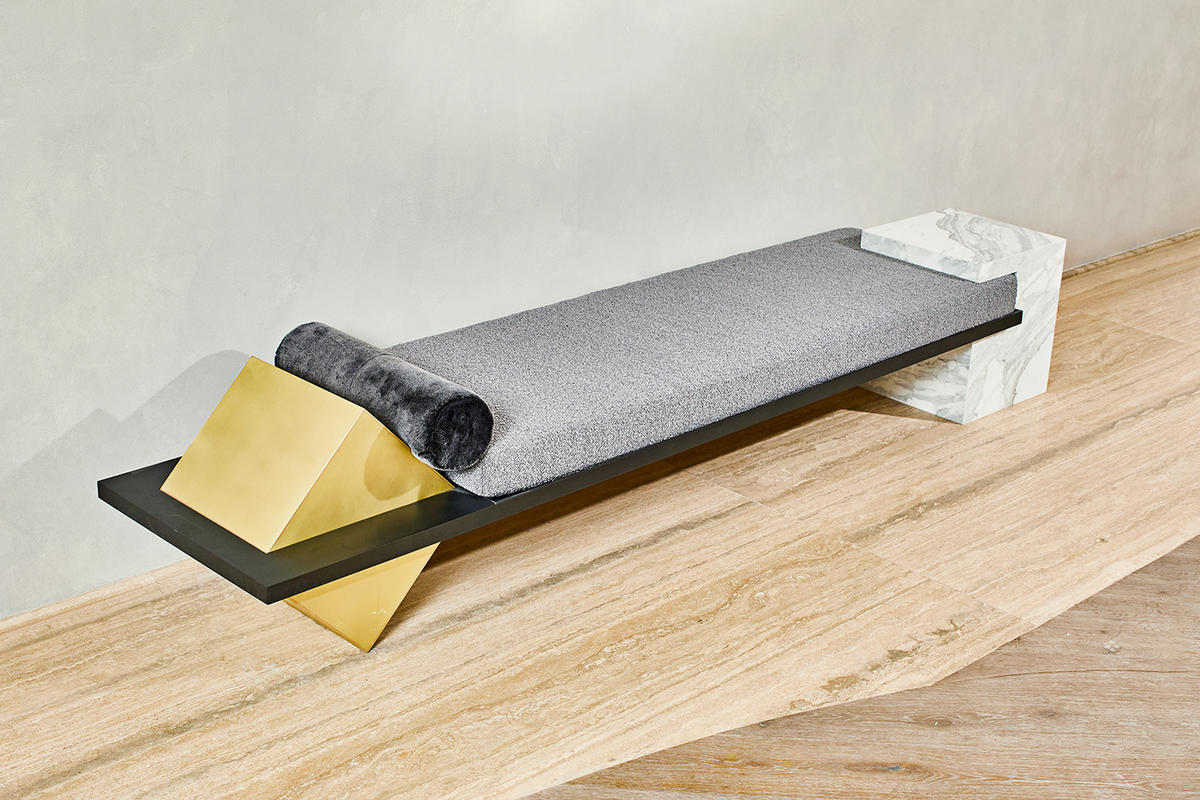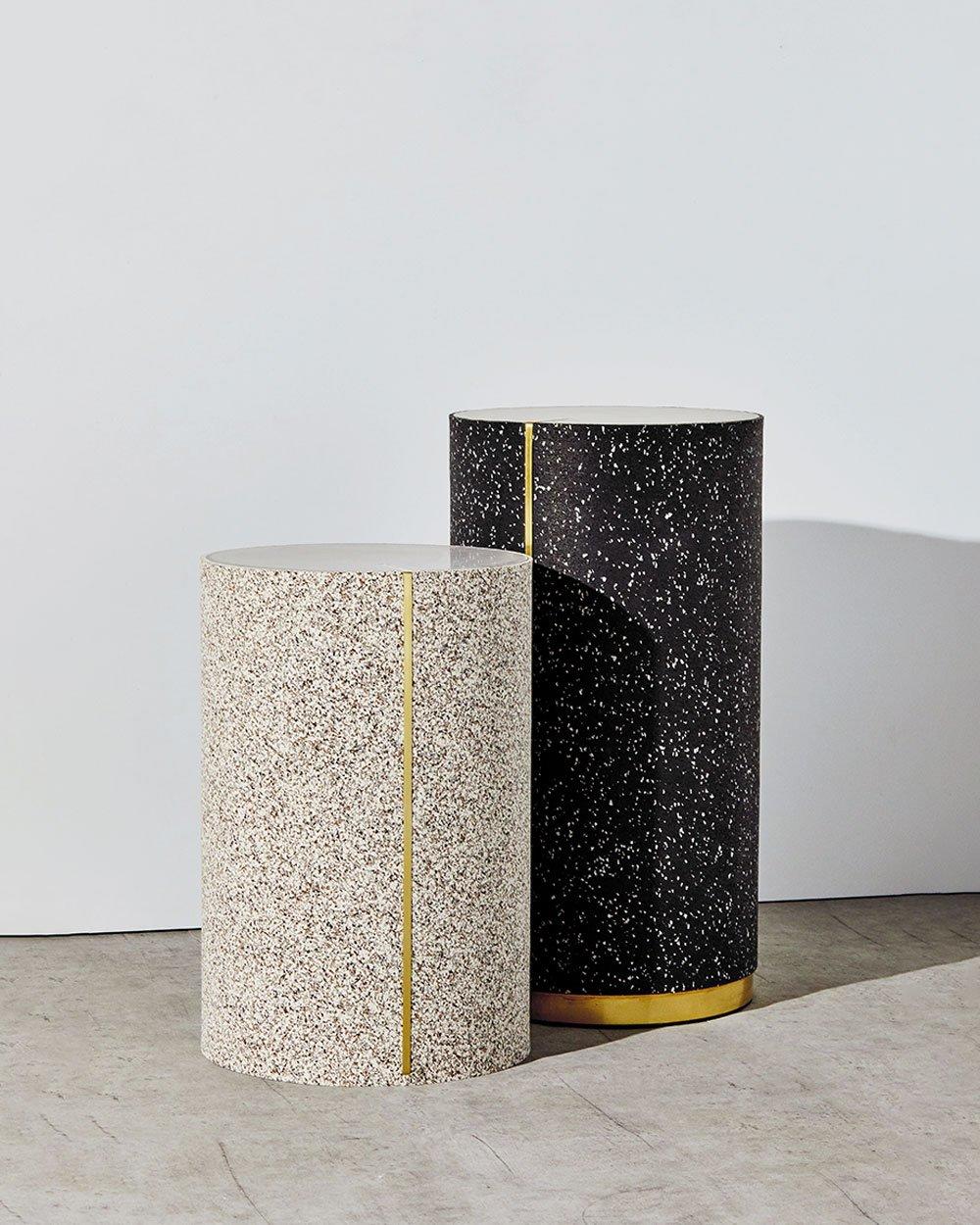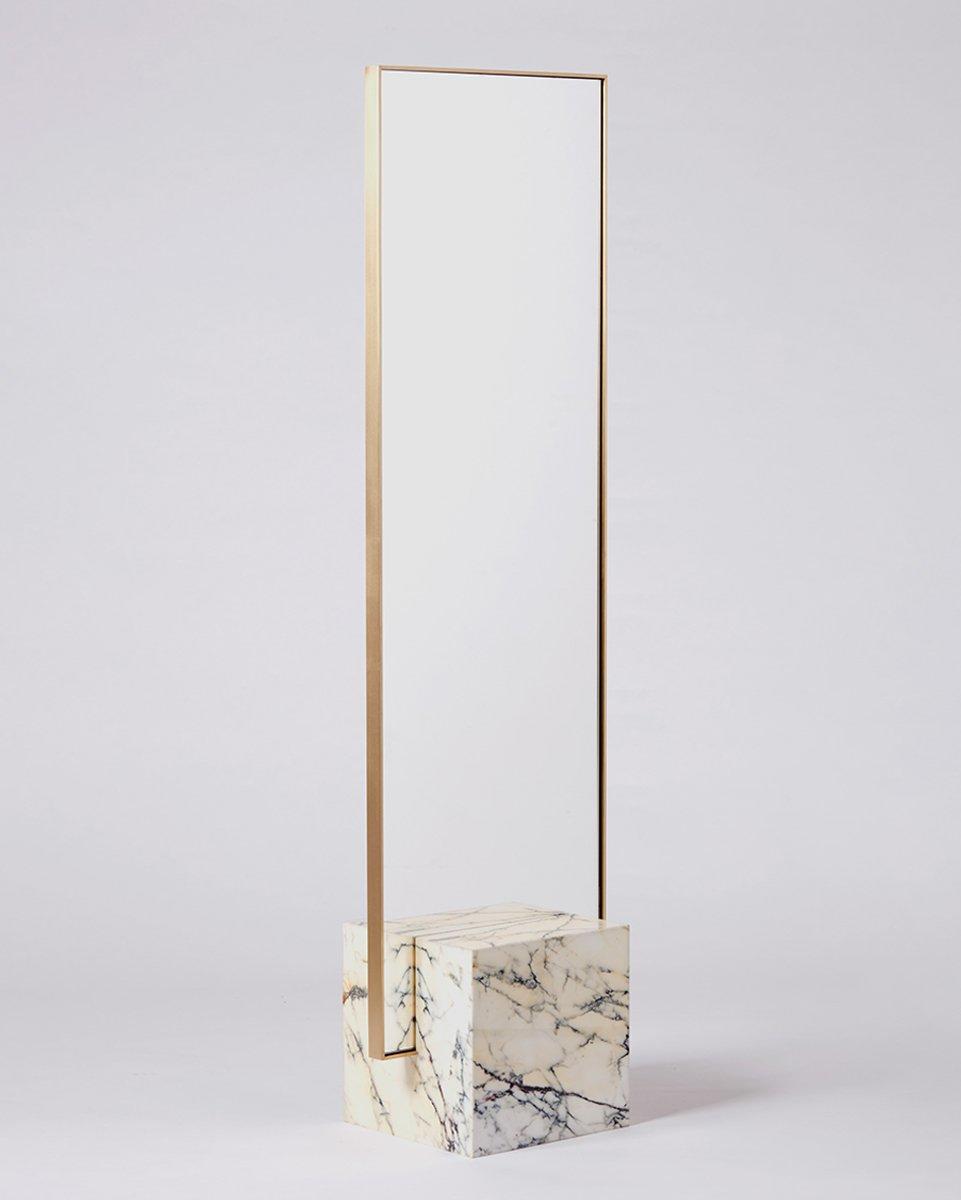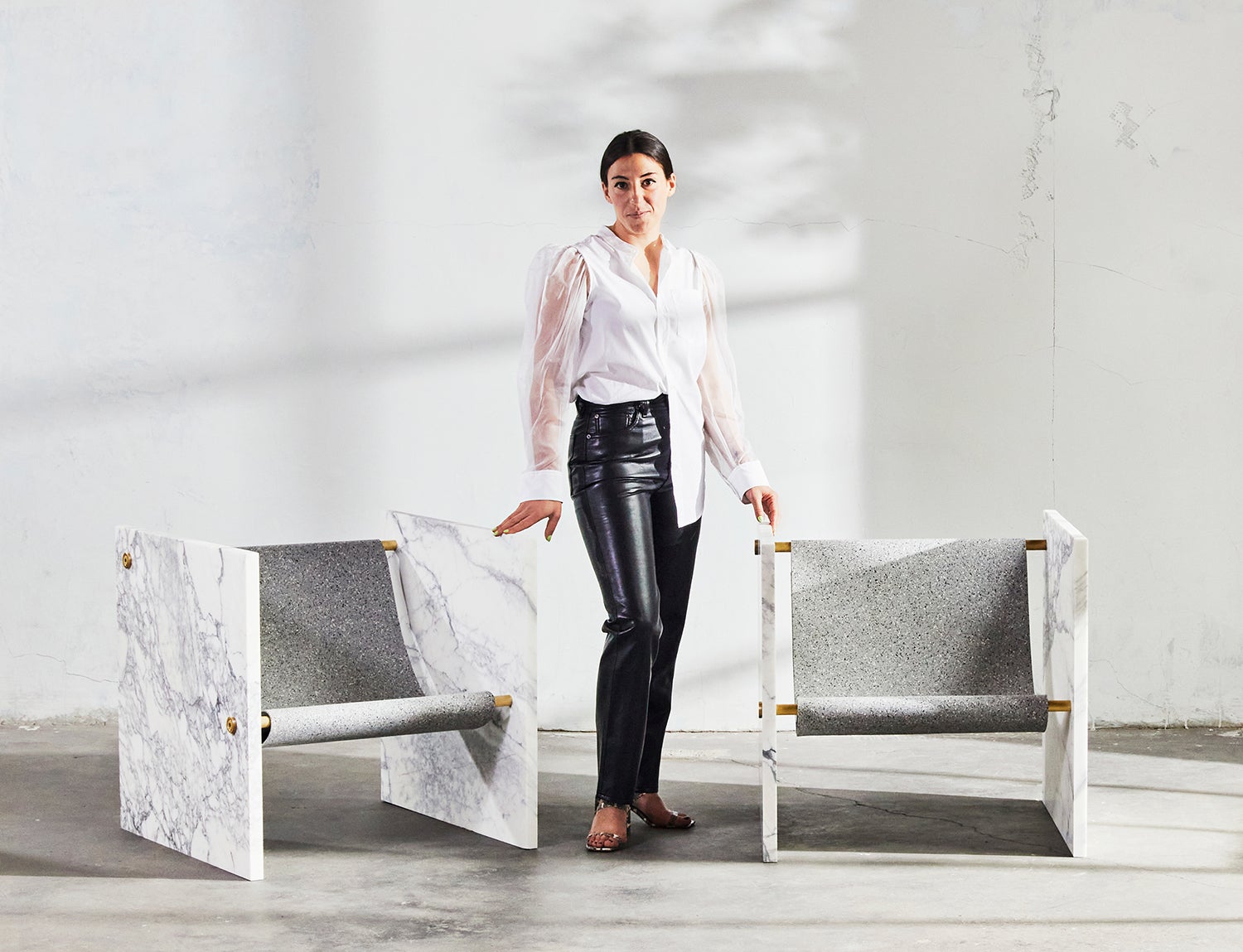American design is a nebulous thing—there are a lot of things it isn’t, but putting words to what the style is can be tricky. Yet a burgeoning faction of U.S. furniture designers are at the forefront of a movement that seeks to define the characteristics that encapsulate “American” design, including Brooklyn, New York–based designer Arielle Assouline-Lichten, the founder of Slash Objects furniture studio. “When I graduated, I really became aware of the world of American design, and I feel like it’s a growing field and it’s having its moment,” she says.
Assouline-Lichten earned a master’s in architecture at the Harvard Graduate School of Design in 2013 and interned at various architecture firms and studios before founding Slash Objects five years ago. “Going into that program, I always knew I wouldn’t come out the other side as [just] an architect,” she tells Business of Home. “When I was thinking about what my graduate degree would be, I was oscillating between different types of design degrees, and I thought architecture would give me the breadth on the other end. I really didn’t think about being a furniture designer at that point. It came through making models for different projects while I was in school—I loved working with the machinery in the shop, [figuring] out how different materials came together, about the tolerances of the tools that we used, [and asking]: What are the processes that enable different outcomes?”

That curiosity-first approach led Assouline-Lichten straight into her first collection in 2016, which reflected what she describes as an experimental mindset driven by the properties of the materials. She made her debut at Sight Unseen’s design fair that year and has only been moving forward since. “I didn’t know what it was going to become, but I had so much fun making the pieces and I got such good feedback that I felt like this was something I had to continue working on,” she says.
Assouline-Lichten’s pieces, with their weighty blocks of marble, concrete planes and brushed metal details, stand as resolute as buildings yet fit seamlessly into contemporary interiors. And for the critics who find minimalist furniture cold, the cool-to-the-touch surfaces of her repertoire are balanced by neutral-toned bouclé and stony velvet upholstery. “I believe in the purity of geometry,” she says. “What’s at the root of my work is a play between inherent material properties and the way in which they are combined—having materials work together in ways that we don’t normally see them coexisting.” Many of Slash Objects’ signature pieces fall into the Coexist collection, named for their seamless (and hardware-free) designs.
Assouline-Lichten was recently a finalist on Ellen’s Next Great Designer, an HBO Max series hosted by Ellen DeGeneres that invited seven American designers to compete in a furniture making contest. “When they approached me, I really didn’t think I would get on the show—I just sort of went with it and saw it as an opportunity to create new work in a new type of environment, and that really excited me,” she says. “Working under deadlines, it allows you to tap into that adrenaline and make decisions quickly and find solutions when you have to. That hyper-constrained environment allowed me to execute more quickly, and it was an opportunity to test out ideas that had been floating in my mind—it was a nice lab where I could really experiment.” From the show came a number of designs, including a room divider that transforms into a desk, as well as a chair inspired by an Adrianna Jimenez Blanchet painting that will become a permanent part of the Slash Objects catalog.


The brand’s monolithic furniture designs are punctuated by a series of terrazzo-like pieces made from reclaimed rubber, including side tables, desk accessories and rugs. “One of my passions is to bring recycled materials into luxury design, because we don’t see much consciousness around materiality in high-end design—so part of the challenge was to see if I could make these materials desirable through what I consider very clean, concise design moves,” says Assouline-Lichten. “I was involved with activism as an undergrad and was searching for a way to merge the passion for our environment [with] making beautiful, durable, long-lasting products and furniture. The recycled rubber wasn’t necessarily beautiful before I began working with it and seeing the potential it had.”
The domestic manufacturing of the pieces has also played a hand in the brand’s commitment to sustainability, from the U.S.-sourced post-consumer recycled rubber to the local Northeast workrooms and manufacturers that craft the pieces. True to her design philosophy, Assouline-Lichten is releasing a new collection later this year to be sold through her website, embracing the unlikely material combinations that have become standard in the Slash Objects spread. “Part of my goal with that was to show people that if you pair pieces properly or create these adjacencies, a material that isn’t desirable can become desirable, and I think that’s part of my role as a designer—to have that vision and show people how you can be conscientious but still make beautiful work.”
To learn more about Arielle Assouline-Lichten and Slash Objects, visit the website or find her on Instagram.
Homepage image: Arielle Assouline-Lichten with the Adri chair, which she designed for Ellen’s Next Great Designer | Courtesy of Slash Objects





























